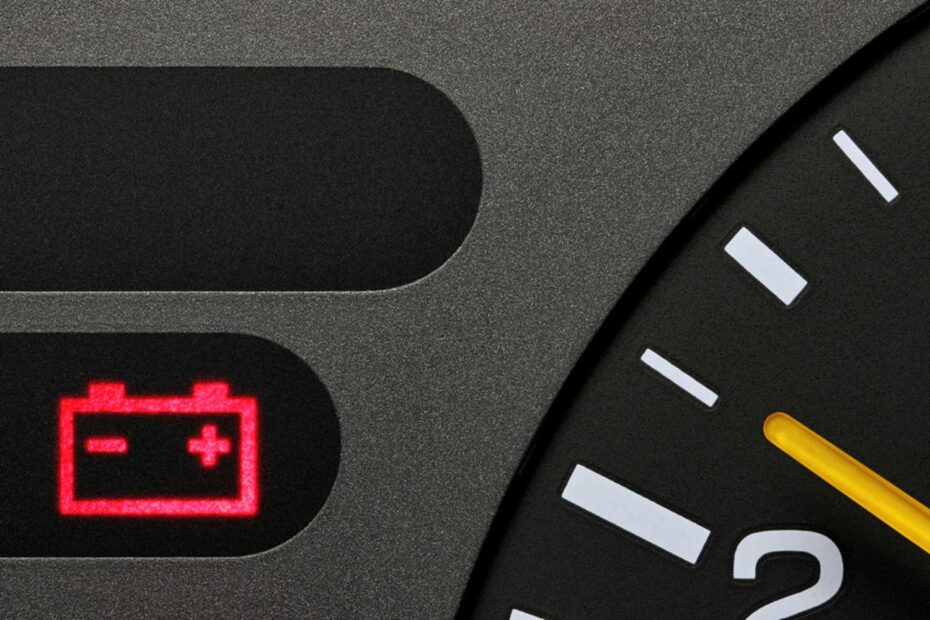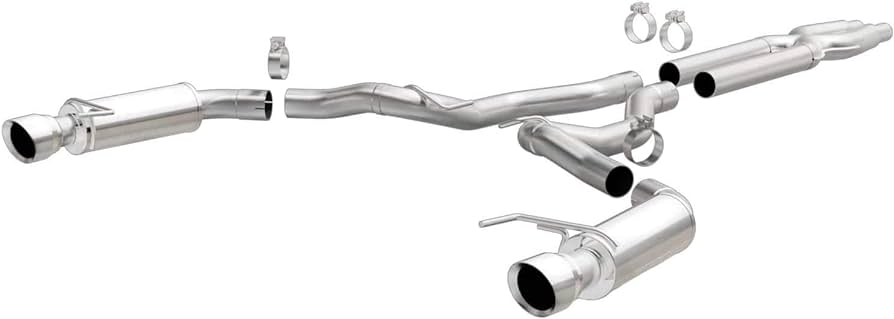To tell if your car battery is dying, look out for signs like dim headlights and difficulty starting the engine, indicating a weak or failing battery. Identifying these symptoms can help you take necessary actions to avoid being stranded on the road.
As one of the most essential components of your vehicle, the battery is responsible for powering the electrical system, including starting the engine. Over time, due to various factors such as temperature fluctuations, age, and continuous usage, car batteries may deteriorate, leading to potential failure.
This article will outline several ways to determine if your car battery is on the decline, enabling you to address the issue promptly and ensure your vehicle’s reliability.
:max_bytes(150000):strip_icc()/why-car-battery-keeps-dying-4125506-a2fbb3e180be4fcfb8bdf42bd8ae1bb6.png)
Credit: www.lifewire.com
Signs Of A Dying Car Battery
Signs of a Dying Car Battery
Dimming Headlights
Dimming headlights are a clear indication that your car battery is struggling. If you notice your headlights becoming noticeably dimmer while driving or coming on or off, it may be time to have your battery checked.
Slow Cranking
Slow cranking is another sign that your car battery might be on its last legs. If you hear a sluggish or delayed engine start when turning the key, it’s likely that your battery is losing its charge and may need to be replaced.
Factors Affecting Battery Life
Spotting signs of a dying car battery hinges on various factors such as prolonged disuse, extreme temperatures, and electrical issues. Keep tabs on slow engine cranking, dashboard warning lights, and age to gauge battery health accurately. Regular maintenance checks can save you from unexpected breakdowns on the road.
Factors Affecting Battery Life The battery is one of the most critical components of your car’s electrical system. Knowing the signs of a dying battery can help you avoid the inconvenience and potential danger of being stranded on the side of the road. Several factors can affect the lifespan of your car battery. In this section, we will explore three key factors: Temperature, Driving Habits.Temperature
Extreme temperatures can have a significant impact on the lifespan of your car’s battery. High temperatures can cause the battery’s electrolyte to evaporate, leading to internal damage and reduced capacity. Similarly, cold temperatures can decrease the battery’s ability to provide the necessary power to start your car. Taking steps to protect your battery from extreme temperatures can help prolong its life. Parking in a garage or shaded area can shield the battery from direct sunlight and excessive heat. In colder climates, consider using a battery blanket or insulator to maintain optimal operating temperature.Driving Habits
Your driving habits also play a role in the health and longevity of your car battery. Short trips and frequent start-stop driving can prevent your battery from fully recharging, leading to a gradual decline in its capacity over time. On the other hand, long drives at highway speeds allow the alternator to fully recharge the battery. To maximize the lifespan of your battery, try to take longer trips whenever possible, allowing the alternator to fully replenish the battery’s charge. If your driving mostly consists of short trips, consider using a battery maintainer or charger periodically to keep the battery charged to its optimal level. In addition to temperature and driving habits, other factors such as the age of the battery, the condition of the charging system, and the cleanliness of battery terminals can also impact its lifespan. Regularly inspecting and maintaining these aspects can help ensure your battery remains in good working condition. Remember, identifying the signs of a dying battery early can save you from the inconvenience of a sudden breakdown. By paying attention to factors such as temperature and your driving habits, you can take proactive steps to extend the life of your car battery.Testing The Battery
Knowing how to test your car battery is crucial in determining if it’s on the brink of dying. Car batteries can die unexpectedly, leaving you stranded and frustrated. By testing your battery regularly, you can prevent such mishaps and ensure your car runs smoothly on the road.
Using A Multimeter
An effective way to test your car battery is by using a multimeter. A multimeter is a handy tool that measures several electrical characteristics, including voltage. Here’s how you can use a multimeter to test your car battery:
- Set the multimeter to the DC volts range.
- Locate the positive and negative terminals of your car battery.
- Connect the red probe to the positive terminal and the black probe to the negative terminal.
- Read the voltage displayed on the multimeter. A fully charged battery should read around 12.6 volts or higher.
- If the voltage reading is significantly lower than 12.6 volts, your battery may be running low and could require charging or replacement.
Load Testing
Another reliable method to test your car battery is through load testing. Load testing involves applying a controlled load to the battery and monitoring its performance. Here’s how you can perform a load test on your car battery:
- Start by fully charging your car battery. It’s crucial to have a fully charged battery before conducting a load test.
- Connect a load tester to the battery following the manufacturer’s instructions.
- Apply the load in accordance with the recommended specifications for your battery. This load will simulate the typical electrical demands your car places on the battery.
- Monitor the battery’s voltage while the load is applied. If the voltage drops significantly or below the recommended threshold, it indicates a weak or dying battery.
- Consider replacing the battery if the voltage drops too low or fails to meet the specified criteria during the load test.
Regularly testing your car battery using a multimeter or load testing can help you identify any potential issues before they become major problems. It will give you peace of mind, knowing that your battery is in good condition and reliable for your daily drives. Remember to follow safety precautions while testing your battery and seek professional assistance if needed.
Preventive Maintenance
Preventive maintenance is crucial for ensuring the longevity and optimal performance of your car battery. By regularly inspecting and maintaining your battery, you can prevent unexpected breakdowns and costly repairs. Here are important ways to prevent car battery issues through proper maintenance:
Regular Inspections
Regular inspections of your car battery can help identify potential issues before they escalate. Check for signs of corrosion, loose connections, and visible damage to the battery casing. Additionally, inspect the battery terminals for any buildup of white powdery residue, which can impede the flow of electricity.
Proper Installation
Proper installation of a car battery is essential to prevent premature failure. Ensure that the battery is securely mounted in place and that the terminals are tightened appropriately to prevent any movement that can lead to damage. When replacing the battery, make sure to connect the positive and negative terminals in the correct order to avoid electrical issues.
Replacing The Battery
If you suspect your car battery is dying, replacing the battery is crucial for keeping your vehicle running smoothly.
Diy Vs. Professional Replacement
Decide between DIY or hiring a professional for battery replacement based on your comfort level and expertise.
Recycling Old Batteries
Recycle old car batteries responsibly to protect the environment and ensure proper disposal.

Credit: m.youtube.com

Credit: www.tireoutlet.com
Frequently Asked Questions For How To Tell Your Car Battery Is Dying
How Do I Know If My Car Battery Needs Replacing?
You can tell if your car battery needs replacing if it’s slow to start, the check engine light comes on, or the battery is visibly corroded or damaged. If in doubt, have a professional check it. Regular maintenance and testing can also help prevent unexpected failure.
What Are The Symptoms Of A Dying Car Battery?
Symptoms of a dying car battery include difficulty starting the engine, dim headlights or interior lights, slow power windows, and a clicking sound when turning the key. If you experience these, it is likely time to replace your car battery.
How Do I Know If My Car Battery Is Too Low?
To determine if your car battery is too low, check for signs such as dim headlights, slow engine cranking, or a clicking sound when you turn the ignition. You may also experience electrical issues like a malfunctioning radio or power windows.
Consider getting your battery tested by a professional if you suspect it’s low.
What Happens If Car Battery Is Low?
A low car battery can cause difficulty starting the car and may lead to electrical system malfunctions. It’s important to recharge or replace the battery promptly to avoid being stranded. Regular maintenance can help prevent low battery issues.
How Can I Tell If My Car Battery Is Dying?
To determine if your car battery is dying, watch for slow engine cranking or warning lights.
What Are Signs Of A Failing Car Battery?
Look out for dimming headlights, a sulfur smell, or frequent jump starts as signs of battery trouble.
Can Extreme Temperatures Affect My Car Battery?
Yes, hot or cold weather can impact battery performance, causing it to struggle or fail.
Conclusion
It’s important to pay attention to the signs of a dying car battery. A proactive approach can save you from unexpected breakdowns. By being aware of the warning signals, you can take necessary steps to address the issue before it becomes a major problem.
Regular maintenance is key to ensuring your vehicle’s battery remains in good condition.
- How to Diagnose Bad Strut Mounts: Expert Tips for Quick Fixes - May 16, 2024
- How to Bypass Blower Motor Relay: 7 Expert Techniques - May 16, 2024
- How to Easily Check Ecu Ground: Essential Steps for Optimal Performance - May 16, 2024



